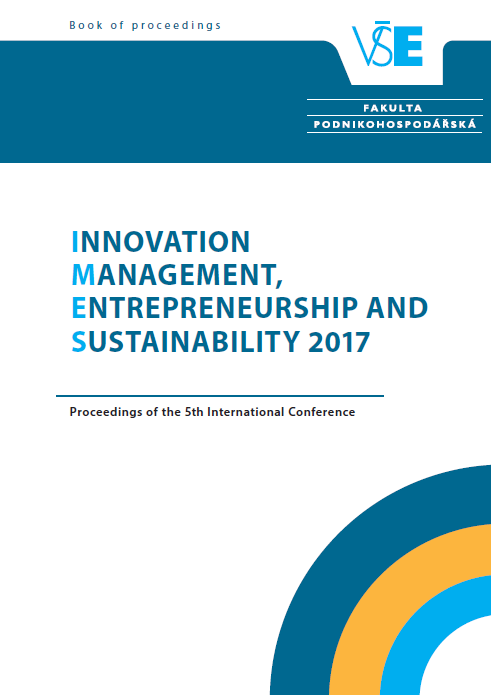New Business Model Innovations and Collaborations to Support the Circular Economy
New Business Model Innovations and Collaborations to Support the Circular Economy
Author(s): Vesela Veleva, Gavin Bodkin
Subject(s): Politics / Political Sciences, Social Sciences, Economy
Published by: Vysoká škola ekonomická v Praze
Keywords: circular business models; environmental entrepreneurs; waste repurposing; product reuse; remanufacturing
Summary/Abstract: Purpose: This paper will discuss the role of small entrepreneurial companies and business to business (B2B) collaborations to advance the circular economy (CE). The authors will share insights from a U.S.-based research project that examined the drivers, barriers and opportunities for advancing waste repurposing and product reuse/remanufacturing. Many large companies fail to incorporate CE principles into their business strategy due to costs, logistical hurdles and lack of mandates. This presents an opportunity for entrepreneurial companies with innovative business models to fill the gap and provide critical links for corporations in reverse supply chains while creating new business opportunities with social benefits. Design/methodology/approach: The research is based on empirical study of six large corporations with zero waste goals and six entrepreneurs focused on product reuse/remanufacturing or waste repurposing. Some of the participating companies include Dell Technologies, Raytheon, Waste Management, First Solar, Circular Blu, and Seeding Labs. Data was collected through in-depth, semi-structured interviews with senior managers or founders. The study employs a theoretical model for developing a life cycle management strategy proposed by Sanchez et. al. (2004) and the circular business canvas model (Levandowski, 2016), wherein the authors analyze the emerging drivers, current barriers and future opportunities for business to advance the CE.Findings: The study found that despite the lack of federal regulations in the U.S. a growing number of companies are forming partnerships to reduce waste and advance product reuse or remanufacturing. Key drivers for such trends include customer demands, corporate sustainability commitments and state-level mandates. Technology also plays a critical role in reducing transaction costs and supporting social-marketing strategies and partnerships. Research/practical implications: The study contributes to the research on the relationship between entrepreneurial innovation and the development of CE principles within corporate supply chains, a field that is still in its infant stage (Heshmati, 2015). The study offers valuable lessons for entrepreneurs interested in developing viable business models around product reuse, remanufacturing or waste repurposing. Future research should consider comparing B2B collaborations in the U.S. and Europe to analyze the similarities and differences in business strategies for advancing the CE. Originality/value: This paper provides insights into a field that is still greatly underdeveloped – the role of environmental entrepreneurs entering a new market space based on collaborations with large corporations to advance product reuse/remanufacturing or waste repurposing that promote the circular economy.
Book: Innovation Management, Entrepreneurship and Sustainability (IMES 2017)
- Page Range: 1061-1072
- Page Count: 12
- Publication Year: 2017
- Language: English
- Content File-PDF

